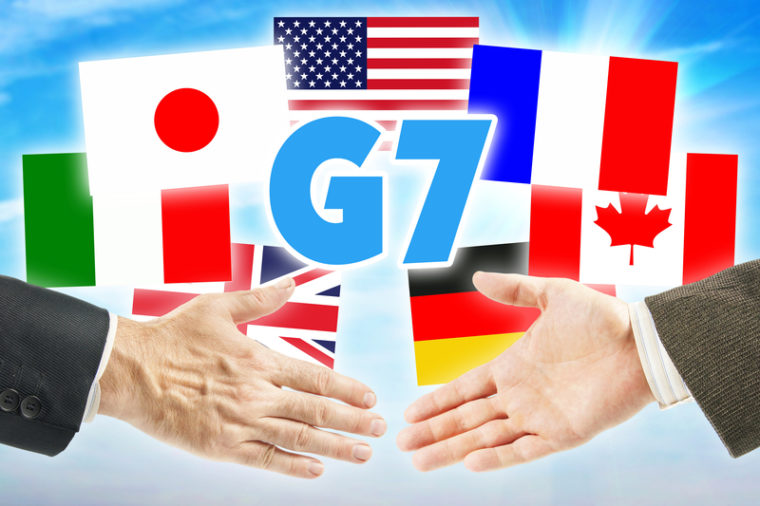
President Joe Biden will have to do a lot of persuading this weekend at the Hiroshima, Japan, summit of G-7, which groups the world’s richest and most militarily powerful countries allied to the US.
The summit’s unusual importance has forced him to interrupt negotiations on the federal debt limit. There is urgency because tensions with China are rising almost daily while the intensified war in Ukraine seems headed to a protracted proxy conflict between Russia and US-led allies, including Japan.
On Thursday, Biden will meet separately with Japanese Prime Minister Fumio Kishida who has billed the summit starting Friday as the “most important in Japan’s history”. He is worried about Biden’s increasing political isolation from China and Russia, both of which are Japan’s permanent neighbors.
Kishida is deeply concerned that the Ukraine war could turn nuclear if President Vladimir Putin thinks that Washington wants to inflict a humiliating defeat on Russia. So, the summit is being held in the city that represents stern opposition to nuclear weapons. It is also Kishida’s hometown.
G-7 leaders are likely to make a show of unwavering unity against Putin under Biden’s leadership. But that will not deter him or China’s Xi Jinping from trying to disrupt what they see as self-serving US hegemony over the international order since World War II in Europe and the Indo Pacific.
Kishida’s nightmare is their closer alliance in an axis against the US, its allies and Japan. His country has unresolved disputes with both over islands in neighboring seas and his people would be in the frontline of any military clash between the US and China or Russia in the region.
To prevent that, Kishida and Biden need clear support from major developing countries that are excluded from the G-7 club’s membership.
Among those, Indian prime minister Narendra Modi is the most influential because he is the current president of the G-20 group of leading nations that includes the US, China and Russia. He has been invited to Hiroshima and will meet Biden for separate talks.
Modi is the only leader outside G-7 from a democracy large and powerful enough to get the attention of Putin and Xi, since Biden is shunning Putin and Xi has stopped picking up the phone. This breakdown in communication can only exacerbate suspicions and could lead to war at the touch of a matchstick.
Significantly, Biden has invited Modi for a state visit to Washington on June 22. There is some hope that he can be a go-between with Putin and Xi since he still has open lines of communication and works with them in the BRICS group that comprises Brazil, Russia, India, China and South Africa.
Despite Modi’s critics, Biden trusts him and does not see India as a potential security threat. This is a cross party view in Washington and unlikely to change even if a different president enters the White House in January 2025.
The G-7 club is losing influence because its share of global GDP in nominal terms peaked at nearly 70% in the late 1980s and dipped to under 45% in 2021. At about 32% in 2022 in purchasing-power parity terms, BRICS surpassed the G-7’s share of about 29%. By 2028, their share could be over 35% compared to 27% for G-7, according to leading Western analysts.
The erosion of Biden’s diplomatic prestige is evident in the reluctance of most developing countries to stand alongside him against Russia’s obviously dishonest and brutal invasion of Ukraine. Even fewer are standing alongside him in resisting Xi’s forceful anti-Americanism in the Indo Pacific.
Biden is trying to build Modi into a bridge between the US and major developing countries to prevent further slide in America’s influence outside its system of alliances.
This is urgent because prolonged war in Ukraine will deal crushing economic blows to developing countries. They are already reeling from the coronavirus pandemic aftermath and rising US interest rates, which are raising borrowing costs for them and worsening high inflation and increasing energy and food costs.
Worsened poverty and social and labor unrest in poorer countries will unravel American influence and weaken the G-7 club faster than any of Xi’s clever maneuvers.
Disturbingly, Japanese diplomats preparing the summit found that many developing countries are starting to prefer working with Beijing rather than Washington. Without Modi’s support, Biden will have a harder time trying to rebuild the trust that Washington has been losing among developing countries for at least 15 years.
Biden also has a trust deficit with Kishida, who is deeply worried about Xi’s aggressive policies in neighboring seas, Chinese military maneuvers around Taiwan, and North Korea’s test-firing of missiles near Japan.
It will not be easy to persuade Kishida, a vital ally, to stand steadfast because Biden has failed to moderate Chinese and North Korean actions that increase security risks for Japan. Instead, both are becoming more aggressive.
Despite rhetoric about unity, Kishida’s confidence in Biden is not a given, especially if Ukraine’s Volodymyr Zelensky fails to push the Russians back or China starts military action against Taiwan in case next year’s presidential elections there strengthen pro-independence politicians.
Some Asian (and American) analysts think that a Chinese military intervention could happen as early as 2025 soon after Biden starts a second term, or investiture of another the US President. The Biden administration has said it will supply $500 million in sophisticated weapons to Taipei, provoking dire warnings of war preparations by Chinese leaders.
Photo 135503996 © Alexei Poselenov | Dreamstime.comGY,
















